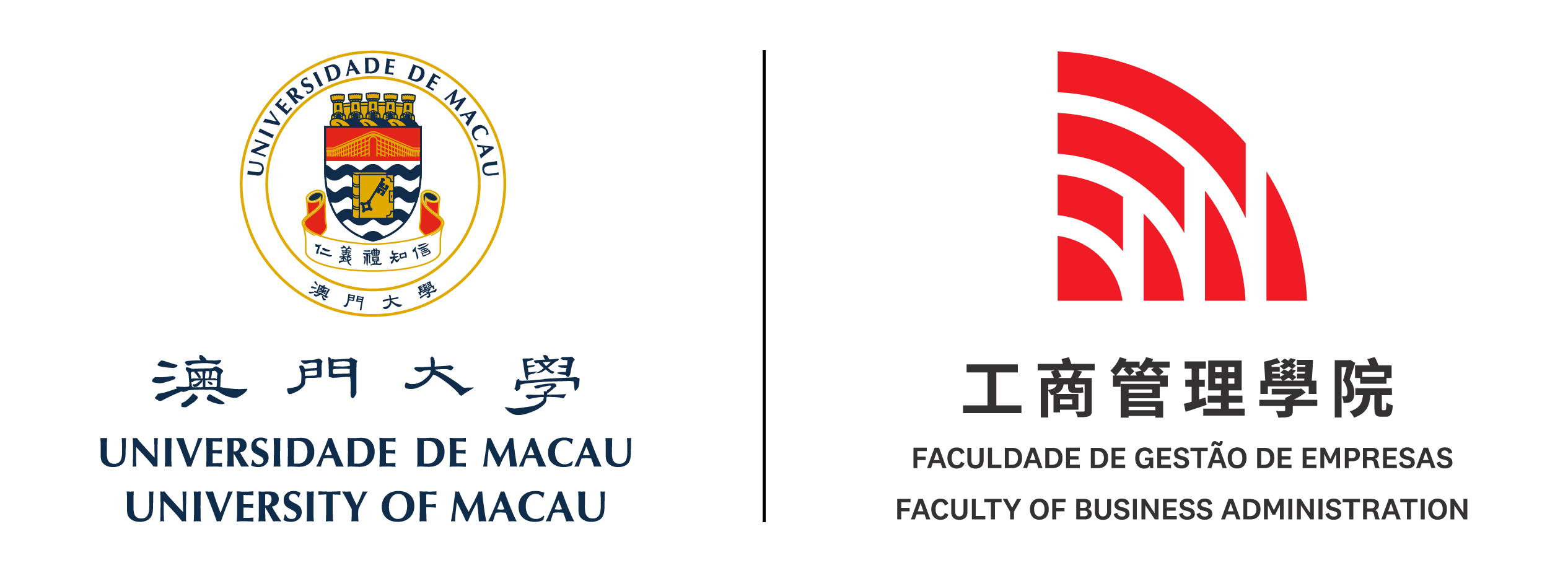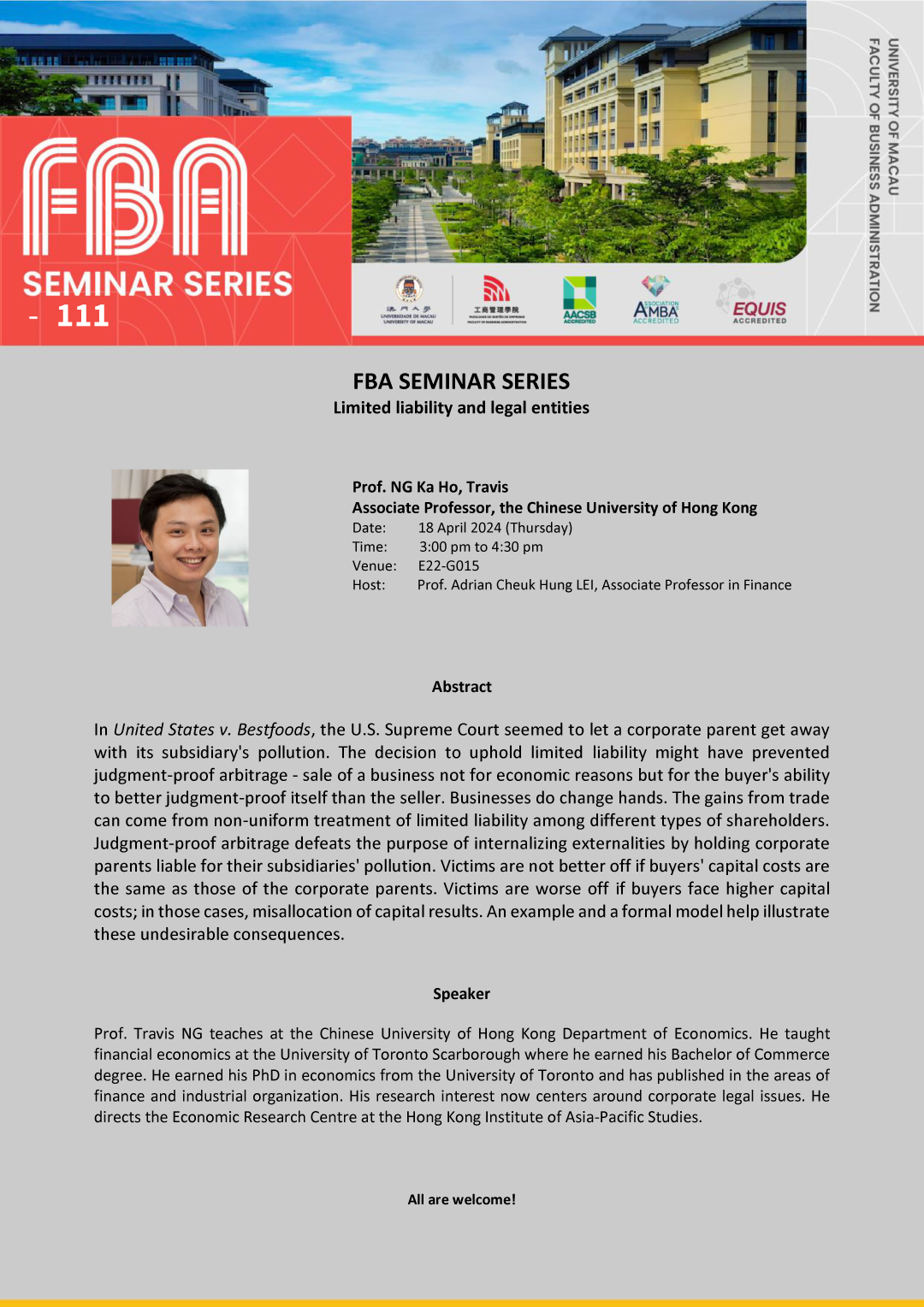Limited liability and legal entities
Prof. NG Ka Ho, Travis
Associate Professor, the Chinese University of Hong Kong
Date: 18 April 2024 (Thursday)
Time: 15:00-16:30
Venue: E22-G015
Host: Prof. Adrian Cheuk Hung LEI, Associate Professor in Finance
Abstract
In United States v. Bestfoods, the U.S. Supreme Court seemed to let a corporate parent get away with its subsidiary’s pollution. The decision to uphold limited liability might have prevented judgment-proof arbitrage – sale of a business not for economic reasons but for the buyer’s ability to better judgment-proof itself than the seller. Businesses do change hands. The gains from trade can come from non-uniform treatment of limited liability among different types of shareholders. Judgment-proof arbitrage defeats the purpose of internalizing externalities by holding corporate parents liable for their subsidiaries’ pollution. Victims are not better off if buyers’ capital costs are the same as those of the corporate parents. Victims are worse off if buyers face higher capital costs; in those cases, misallocation of capital results. An example and a formal model help illustrate these undesirable consequences.
Speaker
Prof. Travis NG teaches at the Chinese University of Hong Kong Department of Economics. He taught financial economics at the University of Toronto Scarborough where he earned his Bachelor of Commerce degree. He earned his PhD in economics from the University of Toronto and has published in the areas of finance and industrial organization. His research interest now centers around corporate legal issues. He directs the Economic Research Centre at the Hong Kong Institute of Asia-Pacific Studies.
All are welcome!


